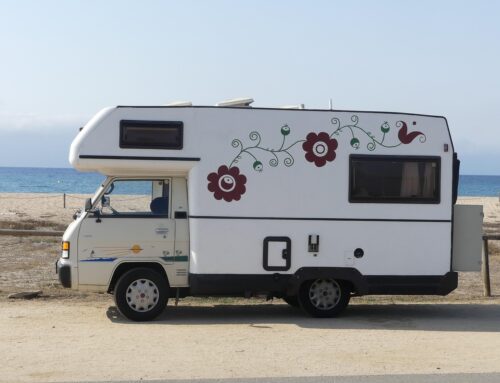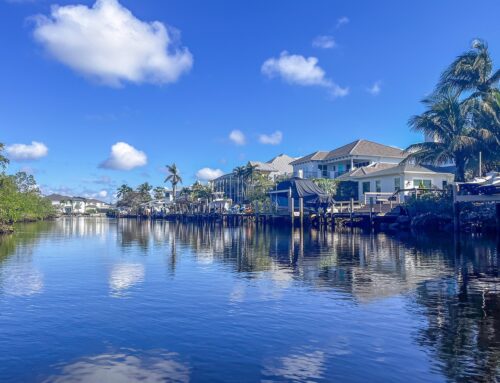Florida is a popular destination for both visitors and new residents – and many Florida residents have found it profitable to rent their properties. Of course, insurance is a vital aspect of renting your property out to others, but the type of property you have matters. The Sunshine State’s insurance requirements for landlords and Airbnb hosts differ in several respects, largely due to the difference between traditional long-term rentals and short-term vacation rentals. As a property owner, whether you are renting your property to long-term tenants or offering it as an Airbnb, it’s crucial to have the right insurance coverage to protect yourself and your investment.

Please note: Insurance laws change all the time and the information in this article may be outdated. Please consult an insurance expert if you are planning to rent your home or property.
Insurance Requirements for Traditional Landlords
If you are a landlord renting your property on a long-term basis (typically more than 30 days), certain types of insurance are essential:
Landlord Property Insurance: Also known as “dwelling insurance,” this policy covers the physical structure of the rental property in case of damage from events like fire, theft, or vandalism. It typically does not cover damage caused by tenants, so landlords may need to clarify that tenant-caused damage is not included under this policy.
Liability Insurance: This coverage protects the landlord if a tenant or guest is injured on the property and files a lawsuit. For instance, if a tenant slips on a wet floor in a common area, liability insurance will cover legal fees and medical expenses if the landlord is found responsible for the accident.
Loss of Rental Income Insurance: This coverage protects landlords if their rental property becomes uninhabitable due to a covered event (e.g., fire or severe weather). It ensures that the landlord can continue receiving rental income while the property is being repaired.
Tenant’s Renters Insurance: Although not required by law in Florida, landlords may encourage tenants to purchase renters insurance. This insurance protects the tenant’s personal property, provides liability coverage, and can help cover damages to the rental property caused by the tenant. Some landlords may even make it a requirement in the lease agreement.
Flood Insurance: Since Florida is prone to hurricanes and flooding, landlords in flood-prone areas are advised to purchase flood insurance. Standard homeowner’s or landlord property insurance usually does not cover flood damage, so a separate policy from the National Flood Insurance Program (NFIP) or a private insurer is necessary.
Insurance Requirements for Airbnb Hosts
When it comes to short-term rentals like Airbnb, the insurance landscape can be a bit more complex. Airbnb offers its hosts a “Host Guarantee” and “Host Protection Insurance,” but these programs may not provide complete coverage, and additional insurance is often necessary.
Click to reference Airbnb’s policy on their website.
Host Guarantee: This program covers up to $1 million in damages to the property, but it has limitations. For example, it does not cover damages caused by tenants who intentionally damage the property or by natural disasters. It also doesn’t cover personal liability or theft.
Host Protection Insurance: This covers up to $1 million in liability if a guest is injured or their property is damaged during a stay. It covers incidents like slip and falls but doesn’t cover certain risks like intentional acts or issues arising from property maintenance neglect.
However, it’s important to note that these policies are secondary to any other insurance you may carry. That means if your existing homeowner or rental insurance covers damages, those policies will be used first.
Short-Term Rental Insurance
Many insurers offer specialized insurance for short-term rental properties, which provides broader protection than Airbnb’s Host Guarantee and Protection programs. This type of insurance generally includes:
- Property damage coverage: Covers damage caused by guests.
- Liability coverage: Protects you if a guest is injured while staying at your property.
- Loss of income: If the property becomes uninhabitable due to a covered event, this insurance can replace lost rental income.
Some insurers may also offer add-ons for specific needs like damage caused by guests’ pets or legal disputes with tenants.
Homeowner’s Insurance: Homeowner’s insurance can also apply to Airbnb properties, but you must inform your insurance company if you’re renting out the property on a short-term basis. Standard homeowner’s policies may not cover short-term rentals, so the insurer may require you to switch to a landlord or short-term rental policy, or it may refuse to cover claims altogether if it isn’t informed.
Flood Insurance: Just as with long-term rentals, flood insurance is crucial for Airbnb hosts in flood-prone areas. Even though Airbnb’s Host Guarantee might cover certain types of damage, it won’t cover flooding, so you need a separate flood insurance policy for this.
Key Differences Between Landlord and Airbnb Insurance
While both landlords and Airbnb hosts need property, liability, and income loss coverage, Airbnb hosts face unique challenges due to the transient nature of short-term renters. The primary distinction is that Airbnb insurance policies are often designed to cover higher turnover, occasional property damage, and guest-related liabilities. As a result, while standard landlord insurance may suffice for long-term tenants, Airbnb hosts may need tailored short-term rental insurance to ensure comprehensive protection.
Regularly reviewing your policy with your insurance provider ensures that you are adequately covered, especially given Florida’s vulnerability to natural disasters like hurricanes and floods.
Anderson & Associates Insurance provides high-quality, professional insurance services to homeowners and residents in Sarasota and Manatee County.









